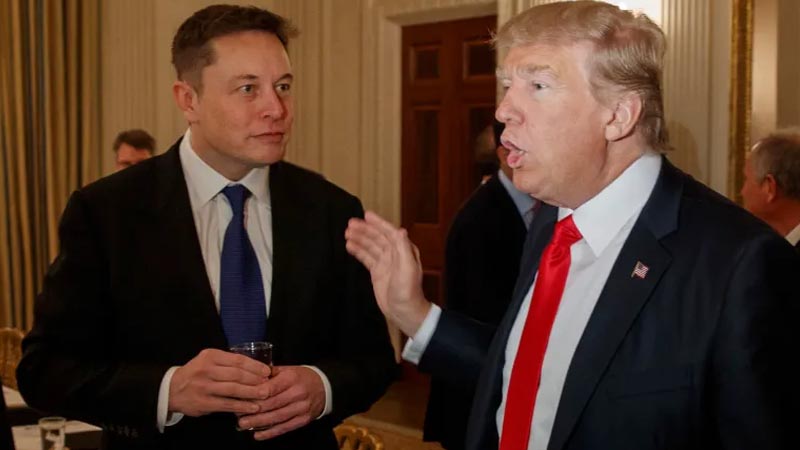Trump Pauses Tariff Threats but Uncertainty Looms as Talks Continue

Photo Credit: Al Drago/Bloomberg via Getty Images
The United States came to the brink of a trade war, but for now, tensions have eased. On Monday, President Donald Trump agreed to a 30-day pause on new tariffs against Canada and Mexico, giving both nations time to address his concerns over border security and drug trafficking. The decision comes after a whirlwind of negotiations that left businesses, investors, and political leaders on edge.
“I am very pleased with this initial outcome, and the Tariffs announced on Saturday will be paused for a 30 day period to see whether or not a final Economic deal with Canada can be structured,” Trump posted on social media. “FAIRNESS FOR ALL!”
Canadian Prime Minister Justin Trudeau confirmed the pause in a post on X, stating that Canada would take several steps to meet U.S. demands. Trudeau announced the appointment of a fentanyl czar, the classification of Mexican cartels as terrorist groups, and the launch of a “Canada-U.S. Joint Strike Force to combat organized crime, fentanyl, and money laundering.”
The move mirrors a similar agreement with Mexico, which will also have time to negotiate solutions regarding drug smuggling and illegal immigration. However, Trump’s 10% tariff on Chinese imports remains on schedule, set to take effect Tuesday. Trump is expected to speak with Chinese President Xi Jinping in the coming days.

While the immediate threat of a trade war has subsided, it does not mean the crisis is over. The agreements with Canada and Mexico are temporary, and Trump has already hinted at imposing tariffs on the European Union. The global economy remains on edge, uncertain whether the worst has been avoided or merely postponed.
Trump’s tariff threats initially shocked markets. On Saturday, he directed 25% tariffs on Mexican and Canadian imports and an additional 10% on Canadian oil, natural gas, and electricity. Despite numerous economic analyses warning of slowed growth, lower incomes, and rising prices, Trump defended his tariffs as a necessary measure to combat illegal immigration and fentanyl trafficking.
Negotiations with Mexico led to a breakthrough after Trump described a “very friendly conversation” with Mexican President Claudia Sheinbaum. As part of the deal, Mexico agreed to deploy 10,000 National Guard troops to its northern border. In exchange, the U.S. pledged to curb the trafficking of high-powered weapons into Mexico.
Canada’s path to securing a pause was less certain. A senior Canadian official, speaking anonymously, admitted Canada was not confident it could avoid the tariffs as Mexico had. Trump’s demands appeared to shift, leaving Canada uncertain about what concessions would satisfy him. When asked what Canada could offer to prevent tariffs, Trump’s response was vague: “I don’t know.” He even jokingly mused about making Canada the 51st U.S. state.
Meanwhile, speculation continues over Trump’s next move against China. “If we can’t make a deal with China, then the tariffs will be very, very substantial,” he warned Monday.
Businesses are already making contingency plans. Stew Leonard Jr., CEO of the supermarket chain Stew Leonard’s, said his team was considering stockpiling Mexico’s Casamigos tequila before the tariffs hit and switching from Canadian to Norwegian salmon.
Despite the pause, uncertainty remains. Stock markets saw slight declines, reflecting cautious optimism that the tariff threats could be short-lived. Even as he met with reporters, Trump inquired about the markets, seemingly aware of the impact his decisions have on the economy.
The underlying tension stems from Trump’s long-standing belief in tariffs as a tool for leverage. Kevin Hassett, director of the White House National Economic Council, insisted, “This is not a trade war. This is a drug war.” However, Trump has frequently spoken of tariffs as a way to ensure foreign nations treat the U.S. fairly in trade. Over the weekend, he hinted at upcoming tariffs on European countries, further fueling global uncertainty.
For now, North America has bought itself time. Whether this pause leads to lasting agreements or reignites economic conflict remains to be seen. As Trump himself put it, “Tariffs are very powerful both economically and in getting everything else you want.”


